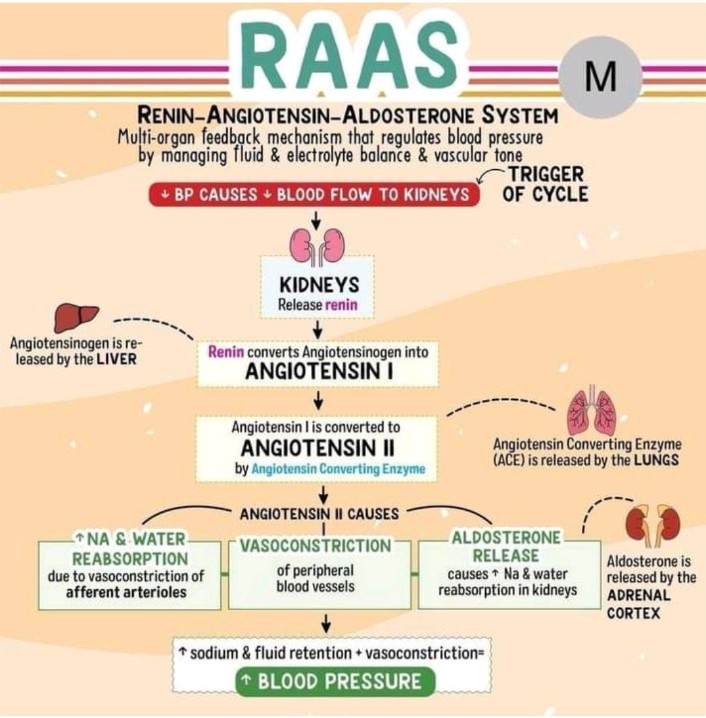♦️The Renin-Angiotensin-Aldosterone System (RAAS) plays a critical role in maintaining blood pressure and fluid balance, making it a cornerstone of cardiovascular and renal physiology. This intricate system consists of hormones like renin, angiotensin, and aldosterone, which work in harmony to regulate vascular tone, sodium retention, and potassium excretion.
♦️The Renin-Angiotensin-Aldosterone System (RAAS) plays a crucial role in regulating blood pressure, fluid balance, and electrolyte homeostasis. Disruptions in this system can lead to several serious health conditions:
1. Hypertension: Overactivation of RAAS increases the production of angiotensin II, a potent vasoconstrictor, which leads to increased blood pressure. Additionally, angiotensin II stimulates aldosterone release, promoting sodium and water retention, further elevating blood pressure.
2. Heart Failure: In heart failure, the RAAS may become activated due to poor kidney perfusion, which exacerbates fluid retention, vasoconstriction, and increased afterload, worsening the heart’s pumping ability and causing symptoms like edema and shortness of breath.
3. Chronic Kidney Disease (CKD): Chronic activation of RAAS can damage the kidneys through sustained vasoconstriction and increased filtration pressure, promoting glomerulosclerosis and eventually leading to kidney failure. Angiotensin II also stimulates fibrosis in renal tissues, contributing to the progression of CKD.
The disruption of RAAS, either through its hyperactivation or insufficient regulation, is therefore central to many cardiovascular and renal diseases, and understanding its mechanisms is vital for effective treatment strategies.
♦️Therapies targeting RAAS, such as ACE inhibitors, ARBS, and aldosterone antagonists, have transformed the management of these conditions, offering hope to millions worldwide.
♦️As researchers and healthcare professionals, understanding RAAS not only helps us appreciate its biological complexity but also inspires innovative solutions for addressing global health challenges. Let’s continue exploring and advancing in this fascinating area of science to improve patient care and outcomes.


